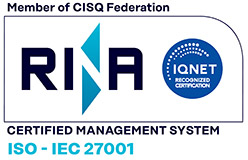EMERGING INFECTIOUS DISEASES – FBK JOINS INF-ACT, AN INTEGRATED PROJECT funded by the European Union – NextGenerationEU

Inaugurated on December 4, 2022 at Pavia with the support of the funds of the PNRR, the consortium provides strong cross-disciplinary skills to address the issue of possible epidemics by integrating aspects of human health, animal health and the environment. Climate and environmental changes underlying changes in wildlife and human interactions, spillover phenomena, epidemic events and numerous other aspects will be analyzed to identify the main current threats and those that may emerge in the future.
Led by the University of Pavia, the project was selected by the Ministry of University and Research and funded with 114.5 million euros, under Mission 4, “Education and Research” – Component 2, “From research to business” of the National Recovery and Resilience Plan (PNRR) – Investment Line 1.3, “Extended Partnerships”, funded by the European Union – NextGenerationEU.
Five main themes will be at the heart of the operational synergy:
- Study of emerging and re-emerging viruses;
- Study of insects and other vectors that carry pathogens and related diseases;
- Study of antimicrobial resistant pathogens and generation and exchange mechanisms of drug resistance markers;
- Study of new integrated epidemiological and microbiological surveillance systems (human-animal-environmental); identification of models for the early detection of emerging infections; development of alert mechanisms and predictive mathematical models;
- Identification of new targets for molecules with anti-infective activity; Design, synthesis and validation of molecules with therapeutic potential with in silico, in vitro, ex vivo and animal model approaches.


